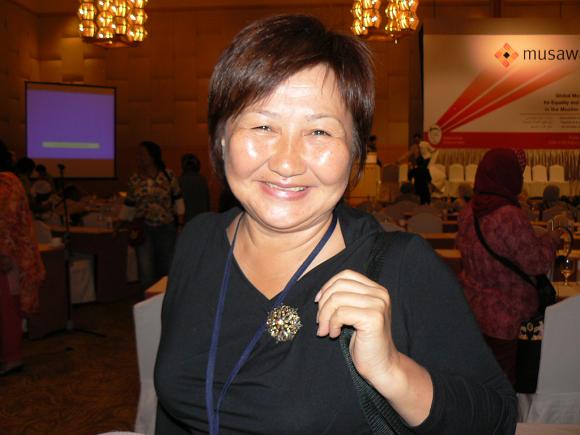Ismailova is the Director of the NGO Bir Duino, formerly known as Citizens Against Corruption, and is one of the most well-know human rights defenders working in Central Asia.
Tolekan Ismailova arrived on Uzbekistan Airways from Bishkek to Tashkent on 24 June but was detained by Uzbekistani border control at the airport. She was travelling with four French citizens who were let through passport control without issue. Ismailova, however, was told that she was on the entry ban list in Uzbekistan, and held back.
Soon after, Ismailova managed to send an e-mail to some of her colleagues abroad, informing them about her situation. However, no further contact could be made after this, as Ismailova’s telephone appeared to be turned off. She had stated in her e-mail that she would not be allowed to use her computer. Border staff at Tashkent Airport would not permit representatives of Bir Duino to speak with her by telephone, but informed that she most likely would be deported on the next Uzbekistan Airways flight to Bishkek, set to depart three days after Ismailova’s original arrival, on 27 June.
Member organizations of the Civic Solidarity Platform informed relevant authorities about the incident and followed developments throughout.
Representatives of Ismailova’s organization purchased a ticket for travel from Tashkent to Almaty with Air Astana at 12:00 on 25 June, and Ismailova was allowed to depart Uzbekistan on this flight. She was met at Almaty Airport by the Norwegian Helsinki Committee.
Travel bans imposed on human rights defenders and journalists in the Commonwealth of Independent States (CIS) was the topic of a Norwegian Helsinki Committee report published in 2010. You can read the report here,
In the time since the Andijan massacre in May 2005, Uzbekistan has frequently deported or denied entry to foreign human rights defenders and journalists. It remains one of the most repressive countries in the world.
